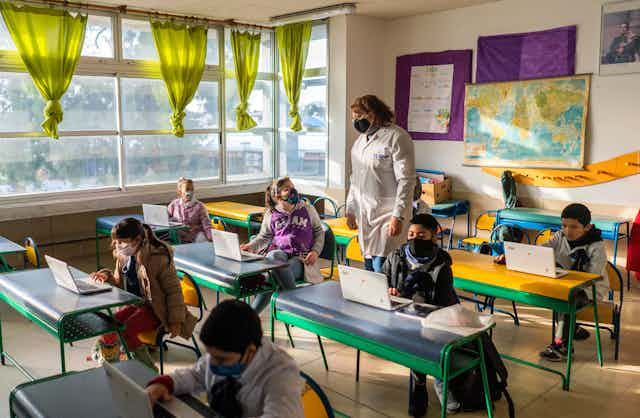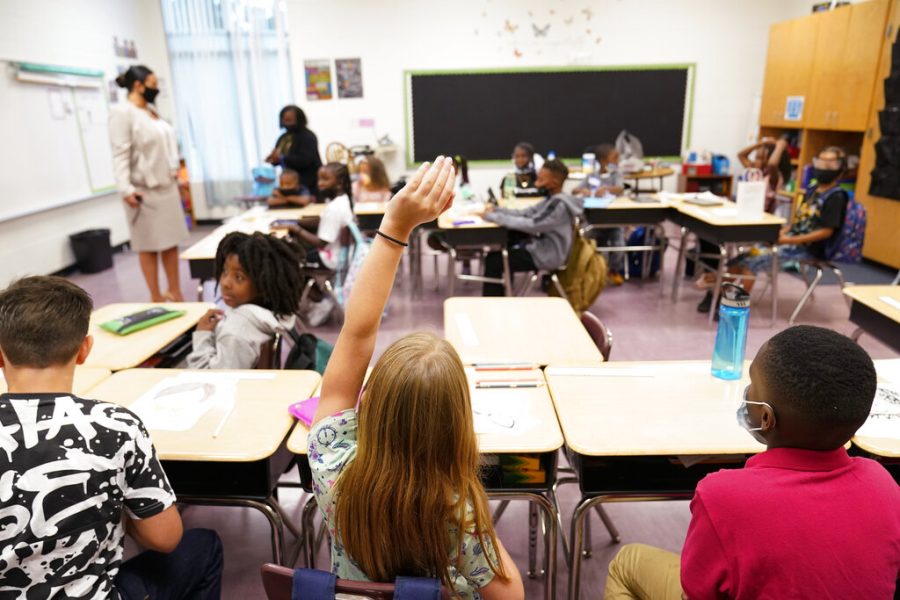Join the Activity to Save Temecula Schools: Community Action Needed!
Join the Activity to Save Temecula Schools: Community Action Needed!
Blog Article
Recognizing the Significance of Institutions in Kid Growth and Area Development
Institutions' interaction with neighborhood neighborhoods with service-learning efforts strengthens the bond between households and educational establishments. This symbiotic partnership highlights the importance of schools in supporting energetic citizenship and long-lasting discovering behaviors.
Academic Success
Academic success works as a cornerstone of youngster growth, supplying the foundation whereupon future knowing and success are constructed. Schools play a critical duty in promoting this scholastic growth, offering organized environments where youngsters can acquire crucial understanding and cognitive skills. Standard educational program make certain that pupils gain effectiveness in core subjects such as mathematics, science, and language arts, which are crucial for both college and expert opportunities.
Along with presenting basic scholastic skills, institutions also cultivate crucial thinking, problem-solving abilities, and intellectual inquisitiveness. These cognitive proficiencies are important for browsing complicated real-world scenarios and adapting to the ever-evolving needs of the modern office. Teachers, as facilitators of learning, utilize varied pedagogical strategies to accommodate varied discovering styles, consequently maximizing specific student capacity.
Moreover, scholastic success is very closely linked to self-confidence and inspiration. Kids who experience academic accomplishments are much more most likely to establish a favorable self-concept and a lifelong enthusiasm for discovering. Institutions likewise supply various resources, such as collections and technology, which additionally boost the instructional experience and prepare pupils for a technically innovative culture.
Social Skill Growth
Beyond scholastic achievement, the function of colleges in social skill advancement is essential. Schools act as a main location for youngsters to find out and practice necessary social abilities such as collaboration, communication, and dispute resolution. In the organized setting of a class, pupils communicate with peers, instructors, and other school staff, using many possibilities to create these critical capacities.
Efficient social skill development in schools is helped with through team activities, joint projects, and extracurricular programs. These interactions help students understand social norms, develop empathy, and cultivate a sense of area. For circumstances, group projects show pupils how to interact towards a common objective, pay attention to different viewpoints, and browse arguments constructively.

The cultivation of social abilities during academic year lays a foundation for future personal and expert connections. Save Temecula Schools. As students develop, the capacity to successfully communicate and collaborate ends up being significantly important, emphasizing the institution's vital duty in holistic kid development
Direct Exposure to Variety
Exposure to diversity in institutions is essential to fostering an inclusive frame of mind and widening trainees' point of views. Schools act as a microcosm of the more comprehensive society, and running into diverse cultures, languages, and socioeconomic histories within this setting gears up pupils with necessary skills for navigating a progressively globalized globe. This exposure encourages compassion, reduces prejudices, and advertises common regard amongst peers.
Research study suggests that trainees that engage with peers from different backgrounds display better analytic abilities and creative thinking. This understanding of variety prepares students for future workplaces that worth multicultural capability - Save Temecula Schools.

Area Engagement
The benefits of diverse classrooms prolong past the institution wall surfaces, cultivating a strong sense of neighborhood interaction amongst pupils. By communicating with peers from different social, socioeconomic, and ethnic histories, pupils obtain a wider perspective and an admiration for diversity. This exposure encourages them to become energetic residents that agree to contribute favorably to their neighborhoods.
Colleges that stress area interaction frequently integrate service-learning jobs, which enable trainees to address real-world issues while applying academic skills. These projects not just boost trainees' understanding of their coursework however additionally instill a sense of responsibility and empathy. advice Collaborations between colleges and regional organizations provide pupils with possibilities to take part in area occasions, further strengthening their duty as positive community participants - Save Temecula Schools.
Furthermore, parental and area participation in colleges reinforces the bond between schools and the areas they serve. They develop a collective setting that benefits all stakeholders when schools open their doors to neighborhood events, workshops, and volunteer chances. This mutual assistance system ensures that students get holistic advancement, preparing them to become well-shaped people that value and add to their neighborhoods. Through these efforts, institutions play a pivotal function in nurturing community involvement and fostering social development.
Lifelong Learning Behaviors
Developing lifelong discovering behaviors is necessary for a youngster's continuous development and adaptability in an ever-changing world. Institutions play a crucial role in instilling these practices by producing an atmosphere that cultivates inquisitiveness, crucial thinking, and a love for knowledge. With varied educational programs and after-school activities, educators encourage students to explore various subjects, evaluate info critically, and apply their discovering to real-world circumstances.

Moreover, institutions provide an organized setting where kids can create self-discipline and time monitoring abilities, both of which are important for continual knowing. By stressing the value of setting objectives, assessing development, and adapting strategies, academic institutions prepare students to browse the intricacies of adult life, guaranteeing they remain lifelong students and contributors to culture.
Conclusion
In conclusion, schools are important in cultivating youngster growth and area growth by offering settings conducive to academic success, social ability advancement, and exposure to diversity. Inevitably, institutions cultivate long-lasting understanding behaviors, equipping people with the needed understanding and skills to add favorably to culture.
In the structured setting of a classroom, trainees communicate with peers, educators, and other college staff, offering numerous chances to develop these important abilities.
In significance, exposure to diversity within colleges not just enriches individual pupils but likewise enhances the social fabric of the area as a whole.
The benefits of diverse class extend beyond the institution walls, cultivating a strong feeling of community interaction amongst Our site trainees.Schools that highlight area engagement commonly include service-learning projects, which enable pupils to address real-world issues while applying academic abilities. Collaborations in between colleges and neighborhood organizations supply pupils with possibilities to participate in neighborhood events, additionally strengthening their role as aggressive community participants.
Report this page